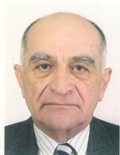Run-Cang Sun, ligniocellulosic chemist, graduated from chemistry department, North-western University, Xian, China in 1982. Then he worked at North-western Forestry College until Sep. 1991. Between Oct. 1991 and Feb. 1993, he studied at Lund University, Sweden as a visiting scholar. From Mar. 1993 to Sep. 1996, Mr. Sun studied at The BioComposites Centre, University of Wales, Bangor, UK as a full time research PhD student. Since Oct. 1996, he worked at the University of Wales, Bangor, UK as a senior research scientist until end of 2007. He was awarded a distinguished Professor at State Key Laboratory of Pulp and Paper Engineering, South China University of Technology, Guangzhou, China in 2000 by China Higher Education Committee, and was selected as the director of State Key Laboratory of Pulp and Paper Engineering in Aug. 2008 (2008.8-2015.5). In addition, Prof. Sun has also being working at the Beijing Key Laboratory of Lignocellulosic Chemistry as a director since Aug. 2006. He was a Dean at the College of Materials Science and Technology between Oct. 2011 and Sep. 2015, Beijing Forestry University, Beijing, China. Since 1993, he has being focused on the fractional isolation, structural characterization, and chemical modification of hemicelluloses, lignin, and cellulose from lignocelluloses for biomaterials, biofuels, and chemicals. He has published 726 SCI papers in peer reviewed international journals in English and 223 papers in international conferences (41 plenary or keynote reports, 25 invited reports, 46 oral presentations) as well as 127 papers in Chinese, which have been totally cited over 20,000 citations by others as of January 23, 2017 (his Google Scholar h-index of 70). He edited a book under the title of “Cereal Straw as a Resource for Sustainable Biomaterials and Biofuels: Chemistry, Extractives, Lignins, Hemicelluloses and Cellulose†2009, Elsevier, London. As invited author, he has published 31 book chapters regarding utilization of lignocelluloses (in English) such as Encyclopaedia of Separation Science (2000 vol. 6, pp. 4568-4574, Academic Press, London). He has got 8 items of research awards and 77 patents. Prof. Sun is a Fellow of The Royal Society of Chemistry, UK and an Editor-in-Chief of “Industrial Crops and Productsâ€ï¼ŒAssociate Editor of “Carbohydrate Polymersâ€, “BioResources†Journal, “Journal of Biobased Materials and Bioenergyâ€, “The world Journal of Forestryâ€, and “Journal of the Faculty of Forestry Istanbul University (JFFIU)â€. He is also a member of editorial board in “Journal of Agricultural and Food Chemistryâ€, “International Journal of Cellulose Chemistry and Technologyâ€, “The Scientific World Journalâ€ï¼Œ Bioethanol Journal,Journal Energy Research and Applications, Bioresources and Bioprocessing,“Journal of Engineeringâ€, Dataset Papers in Chemistry,Energy Review, and “The Open Agriculture Journalâ€ï¼ŒMaterial Science and Engineering,Journal of Chemical Technology and Applications,SF Journal of Material and Chemical Engineering,etc.





